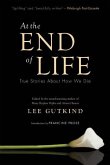Mandatory sterilization laws enacted in dozens of states coast-to-coast and approved by the U.S. Supreme Court formed the initial pillar for what became the Final Solution. Following WWII, there was renewed interest in a more inclusive view of social worth and the autonomy of the individual. Social movements were launched to secure broad-based revisions in civil and human rights. This book is based on a hugely popular undergraduate course taught at the University of Texas, and is ideal for those interested in science-based policy, the social construction of social worth, social problems, and social movements.








